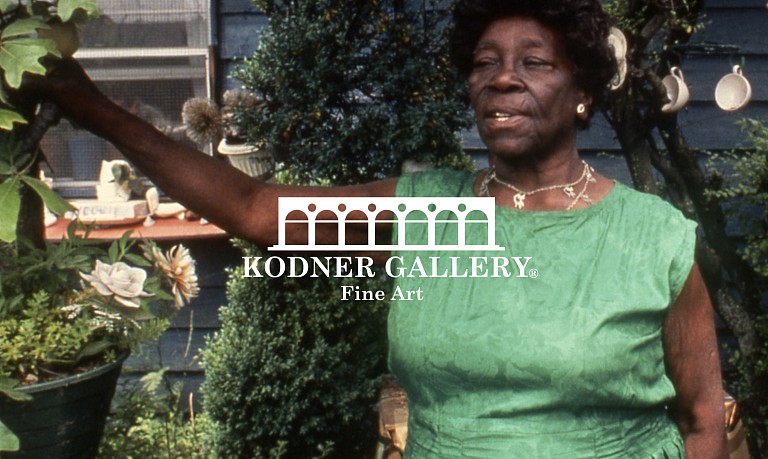Nellie Mae Rowe
American, 1900 - 1982
Nellie Mae Rowe is a preeminent and under-recognized figure of twentieth-century American art.
Through the traveling retrospective exhibition Really Free: The Radical Art of Nellie Mae Rowe, her practice has been re-contextualized as a radical act of self-expression and liberation for a Black woman artist living and working in the American South.
The Really Free features more than one hundred works exploring themes of girlhood, play, and spirituality. Autobiographical drawings, experimental sculpture, and renderings of Rowe’s “Playhouse”—an environment the artist built and lived in for decades—capture her assertion of independence and accessible means of art production. During the last fifteen years of her life, Rowe was fueled by a desire to reclaim a creative vision that emerged during her childhood and achieve self-liberation within the complex cultural climate of the post–civil rights era South.
Born in Fayette County, Georgia, at the turn of the twentieth century, Rowe discovered her passion for art-making early on, producing drawings and cloth dolls as a child. However, the demands of her family farm, an early marriage, and decades of employment as a domestic laborer made it difficult for Rowe to create for many decades. After the deaths of her second husband and her longtime employers in the 1960s, Rowe wholeheartedly returned to her art, devoting the rest of her life to realizing her creative calling. Her dedication resulted in a practice that was immersive, idiosyncratic, and joyous.
|

